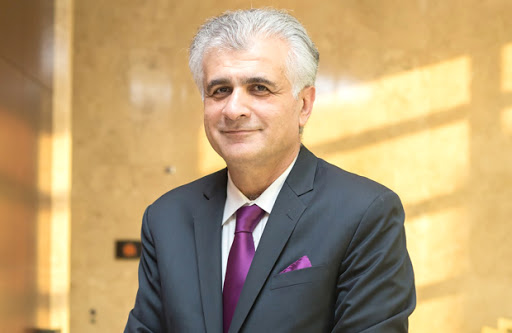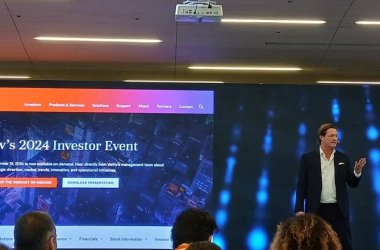Dr. Jassim Haji, President of AI Society Bahrain, has charged the US and China with ‘neglect’ in terms of how they have pursued the development of AI amidst the ongoing global COVID-19 pandemic.

Dr. Haji is one of the most respected business leaders in the Middle East IT ecosystem and has been very vocal in his support for the continued development of AI in order to improve the lives of all in society.
The current outbreak which has affected global supply chains, grounded flights and disrupted the world’s economy has resulted in the current system of capitalism being called into question.
The many flaws of the capitalist system have been exposed during this crisis, and never has the societal divide between those at the top and those at the bottom rung of the ladder been so acute.
According to Dr. Haji economic superpowers such as China and the US who have positioned themselves as leaders in the development of AI have overlooked utilising the capabilities of the technology for the good of society, and instead have focused on how they can capitalise on AI for economic dividends.
“There have been numerous warnings over the last number of years in relation to a global pandemic, and we’ve been highlighting how AI technology can be dispensed to help prevent a possible outbreak. Unfortunately, those warnings have fallen on deaf ears, and it is my opinion that many leaders have rather regretfully pursued the development of AI for solely commercial reasons,” said Haji.
Haji pointed out that AI technologies have been deployed by businesses in order to allow them to automate operations and reduce staff in a bid to save capital and generate new revenue streams, but that approach has backfired.
“It has become evidently clear amidst this current global crisis that AI has been misused. AI should’ve been implemented in service industries such as in the healthcare industry to better protect citizens. That didn’t happen, and I now I believe we’re paying the real price for not seizing on the opportunities presented by AI as our world continues to become overwhelmed by COVID-19,” said Haji.
According to Haji, both the US and China recognised that the costs of R&D around AI was high, and that in order to attract venture capitalists to make investments in the technology, they had to focus on the potential commercialisation of the technology.
“China and the US are real leaders when it comes to AI, and both are trying to now properly deploy the technology in the middle of this global pandemic to try and curb the spread of the deadly virus. Investment in R&D is expensive, but I think it’s obvious that both countries looked beyond the capabilities of AI for the greater good of society in order to focus on the economic impact it could have on industry and the global markets,” said Haji.
The President of AI Society Bahrain is not one to mince his words, but he believes that when this storm finally does pass it will lead to a cultural change in terms of how we view emerging technologies.
“I believe that post COVID-19 the situation will be entirely different, and the entire world will acknowledge that we can’t just go back to normal and think everything is going to be the same as before. We need to rethink how we structure our societies and I think people will ‘demand’ that we seize on the benefits of new technologies to improve society first and foremost, before we attempt to commercialise them,” said Haji.
Haji, a recent recipient of our CIO100 leadership awards believes that in the future AI will be really focused on improving areas such as healthcare and education. He illustrated how the use of robotics could’ve been deployed to protect frontline staff such as doctors and nurses who have put their own lives at risk to save others.
“We really should’ve better developed robotics through Machine Learning in relation to the healthcare industry over the last number of years, as it could’ve prevented many nurses and doctors from sadly losing their lives during this pandemic. Simple tasks such as taking swabs and temperatures to determine whether or not somebody had the Coronavirus would’ve protected so many frontline workers,” said Haji.
The predictive nature of AI represents another missed opportunity when examining how the technology could’ve been utilised to help combat the spread of this deadly strain of influenza.
“One of the greatest strengths of AI is in the forecasting and predictive capabilities of the technology which is based on the data at its disposal. You could’ve predicted which areas were going to be worse affected and enabled medical professionals to focus on where the next challenge would arise. The predictive capabilities of AI have been used on the New York Stock Exchange to see how markets will fluctuate and basically determine how people can make money. However, this doesn’t exist in the healthcare industry, and it should’ve been implemented to help both predict and prevent this outbreak,” said Haji.
One of the positives Dr. Haji can take from this current situation is that he firmly believes that when this pandemic reaches its conclusion it will change the perception of AI on a global scale and reduce the levels of skepticism that have been directed towards the technology in the last number of years.
“The mindset towards AI will change fundamentally. There was a lot of resistance towards AI on a global scale, as it was claimed by many commentators that automation would result in the loss of millions of jobs and it would pave the way for some sort of dystopian world. It is in the human nature to resist change. However, AI is a powerful technology that if used properly can help make the world a better and safer place for us all to live in,” concluded Dr. Haji.





